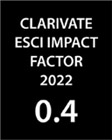A critical geographical analysis of the smart city concept - theoretical background and possible research directions
DOI:
https://doi.org/10.17649/TET.34.2.3201Keywords:
smart cities, smart city critics, urban policy, critical urban geographyAbstract
The smart city concept has recently become a popular topic in urban studies. It can be argued, that the creation of smart cities is a new, 21st century chapter of urban policy and spatial development, which is dominated by neoliberal ideology. Besides, the concept is formed by several stakeholders, such as innovators and investors, policymakers and last but not least smart citizens, who can discover new ways of living and interacting. It is commonly assumed, that the use of information and communication technologies (ICTs) is the backbone of the smart city idea, but there is no definitional clarity regarding the concept because of its complexity. My main research goal was to give deeper insights into the theoretical background of smart city, presenting the most important characteristics and critics of the concept, based on an international literature review. First, I collect and describe the essential components and the most common definitions of the smarty city concept. Afterwards, I put smart cities in the context of neoliberal urban policy, investigating the interests and power relations behind the concept. Furthermore, I identify critical junctures in evolving smart city discourses; these shed light on the issue that the smart city concept cannot be considered as a one-size-fits-all solution to urban problems. In addition, commodification of urban space, surveillance and control of urban life, favouring business-led technological solutions rather than political bargaining and long-term urban planning, might contribute to growing social and territorial disparities. The critical analysis of the smart city concept raised further research questions considering how the concept can be understood in different geographical contexts, and what are the main reasons and barriers to become a smart city. Therefore, more empirical research is needed because the broader social and spatial effects of implementing the concept are still largely unexplored especially in Hungary.
Downloads
Published
How to Cite
Issue
Section
License
Copyright (c) 2020 Ádám Szalai

This work is licensed under a Creative Commons Attribution 4.0 International License.
Authors wishing to publish in the journal accept the terms and conditions detailed in the LICENSING TERMS.






